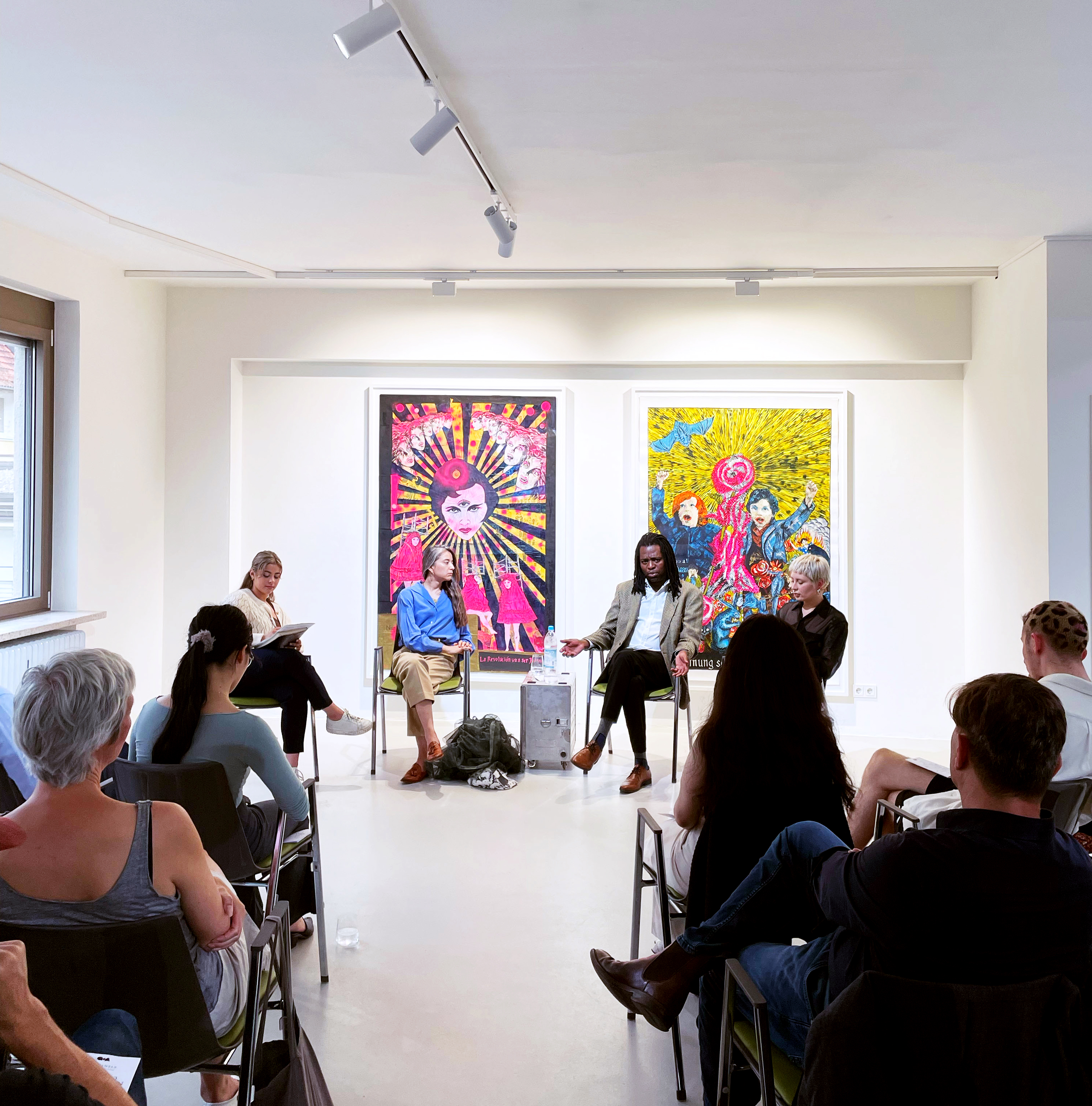
WE INVITED YSC TO HOLD
THIS Q+A PANEL
ABOUT
THIS
PANEL
In zahlreichen Kriegen haben gegnerische Armeen die Zerstörung oder Plünderung von Kulturgütern und Kunst als Waffe eingesetzt. Der Verlust des kulturellen Erbes ist eine inhärente Nebenwirkung der modernen Kriegsführung. Kunst ist jedoch nicht nur ein Opfer des Krieges, sondern auch ein Medium, das von verlorenen Menschenleben, begangenen Verbrechen und erbrachten Opfern zeugt. Betroffene können ihre Erfahrungen durch verschiedene Kunstmedien teilen. Solche Reflexionen überschreiten Grenzen und können in verschiedene Sprachen übersetzt werden. Eine universelle Kunstform bietet die Chance, Künstler*innen Handlungsfähigkeit zurückzugeben. Der künstlerische Ausdruck kann in Gruppen oder allein als Instrument dienen, um konfliktreiche Traumata zu verarbeiten und den langen Prozess der persönlichen, aber auch kollektiven Genesung einzuleiten.
Die Podiumsdiskussion bewertet die verschiedenen Funktionen und Rollen der Kunst im Kontext von Krieg und Revolution. Die Debatte beschäftigt sich mit dem Einsatz von Kunst sowohl als Waffe als auch als Mittel zur Heilung und zum Zeugnis für die vom Krieg Betroffenen.
Die Veranstaltung bringt Künstler*innen aus Konfliktregionen mit Forscher*innen zusammen, die sich mit dem Zusammenspiel von Kunst und Krieg befassen. Persönliche Einblicke treffen auf wissenschaftlichen Input. Die Podiumsdiskussion soll den Künstler*innen Raum geben, ihre Geschichte in Verbindung mit ihrer Kunst zu erzählen, die durch wissenschaftliche Erkenntnisse untermauert werden soll. Durch die Öffnung des thematischen Rahmens für mindestens zwei verschiedene Kontexte von Krieg und Revolution werden unterschiedliche Hintergründe auch über (West-)Europa hinaus beleuchtet. Das Panel befasst sich mit der doppelten Rolle der Kunst in Zeiten von Krieg und Revolution: Ist Kunst eine Waffe oder ein Trost?
—
In numerous wars, opposing armies have used the destruction or looting of cultural assets and art as a weapon. The loss of cultural heritage is an inherent side effect of modern warfare. However, art is not only a casualty of war, but also a medium that bears witness to lives lost, crimes committed and sacrifices made. Those affected can share their experiences through various art media. Such reflections cross borders and can be translated into different languages. A universal art form offers the opportunity to give back agency to artists. Artistic expression, in groups or alone, can serve as a tool to process conflictual trauma and initiate the long process of personal, but also collective, recovery.
The panel discussion will assess the various functions and roles of art in the context of war and revolution. The debate will look at the use of art both as a weapon and as a means of healing and bearing witness to those affected by war.
The event brings together artists from conflict regions with researchers who are investigating the interplay between art and war. Personal insights meet academic input. The panel discussion is intended to give the artists space to tell their stories in connection with their art, which will be underpinned by scientific findings. By opening up the thematic framework to at least two different contexts of war and revolution, different backgrounds will also be illuminated beyond (Western) Europe. The panel deals with the dual role of art in times of war and revolution: Is art a weapon or a consolation?
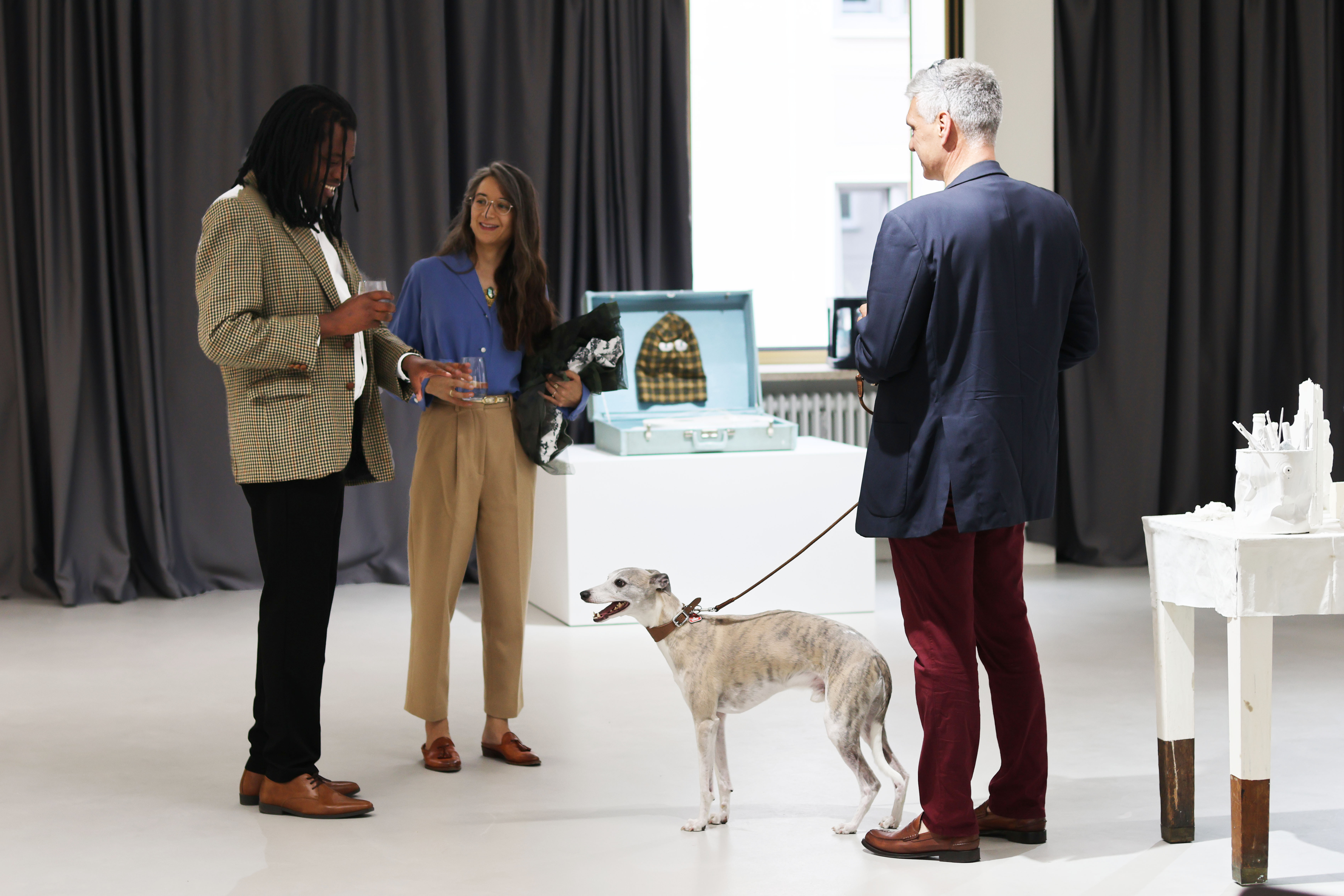
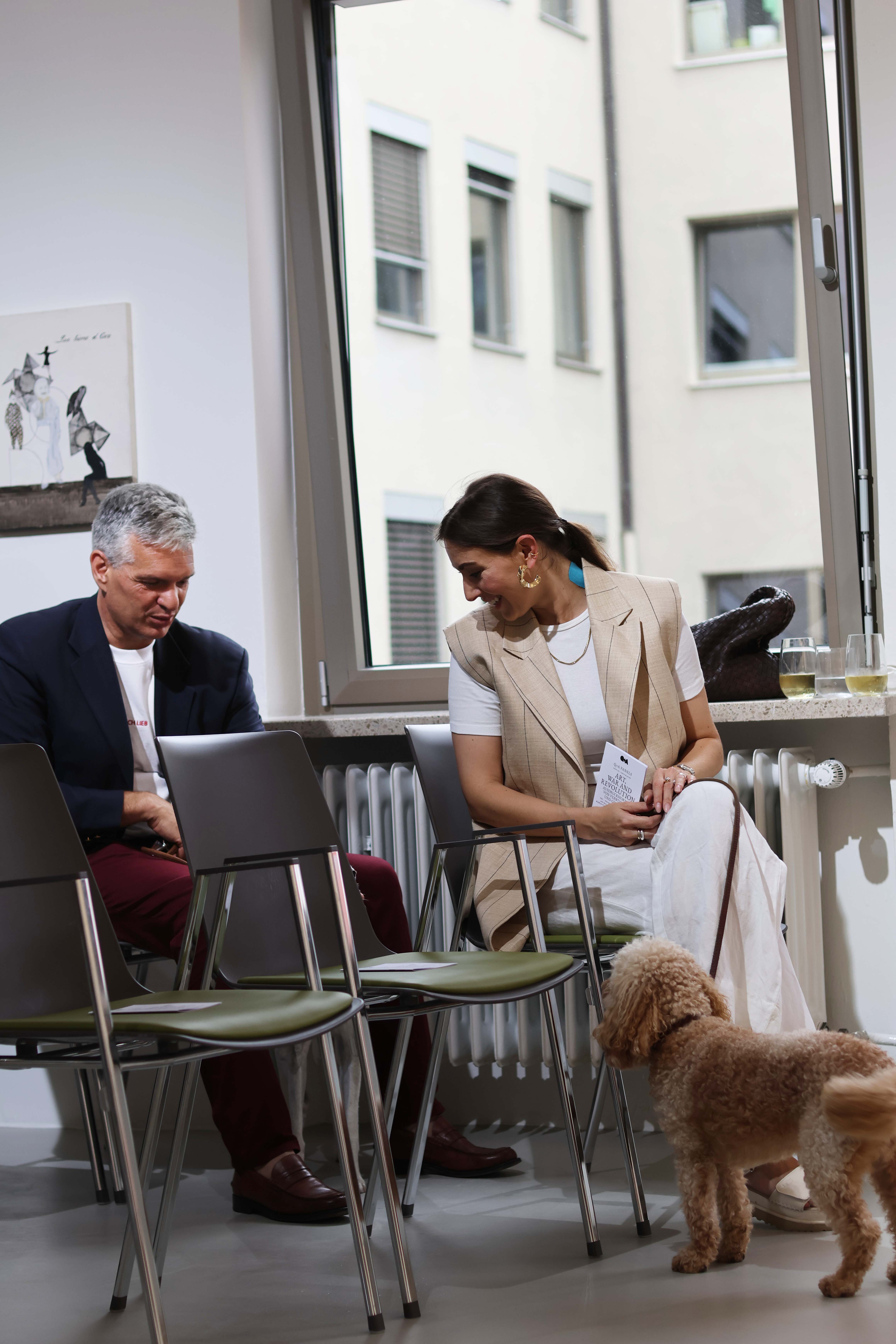

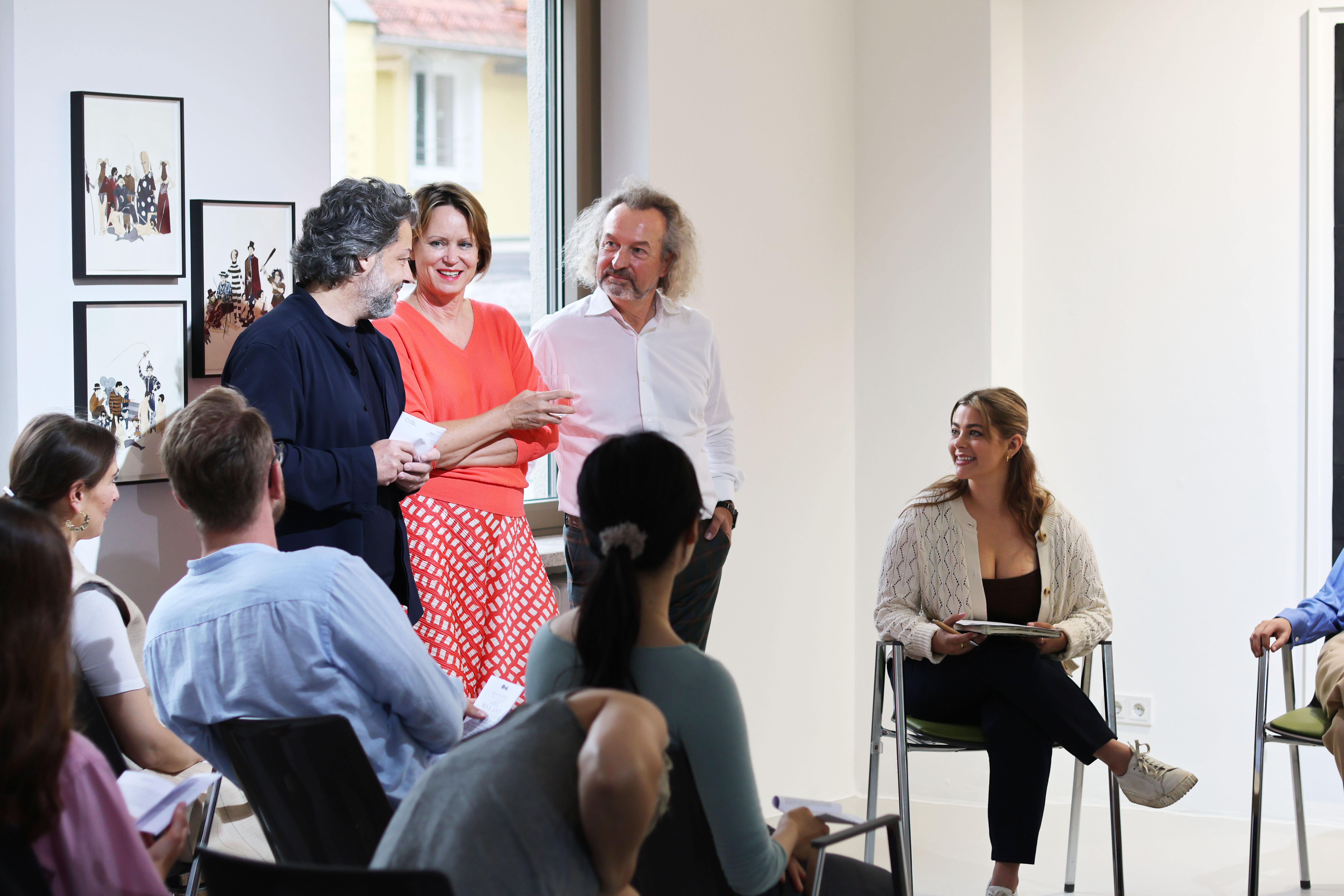
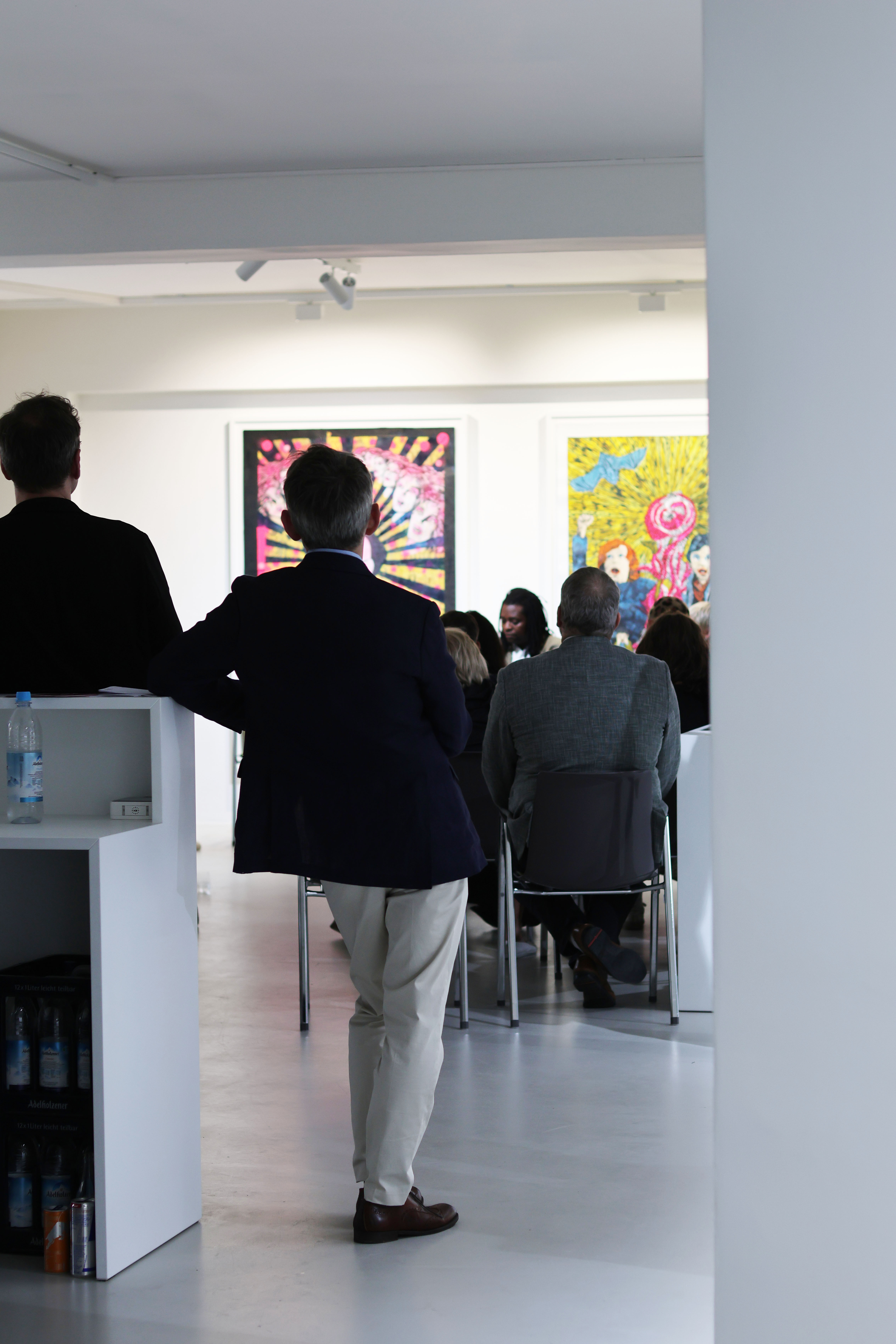
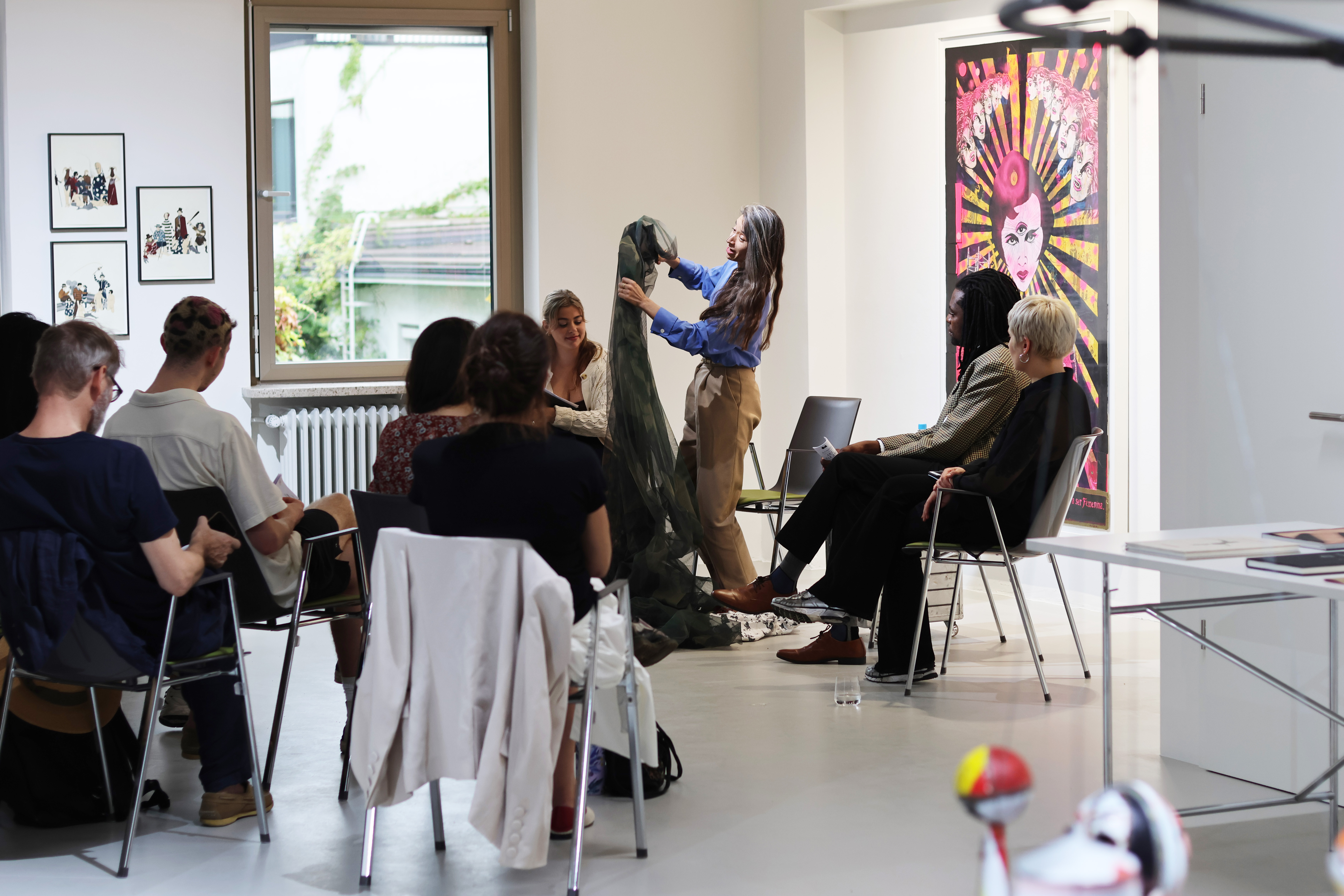
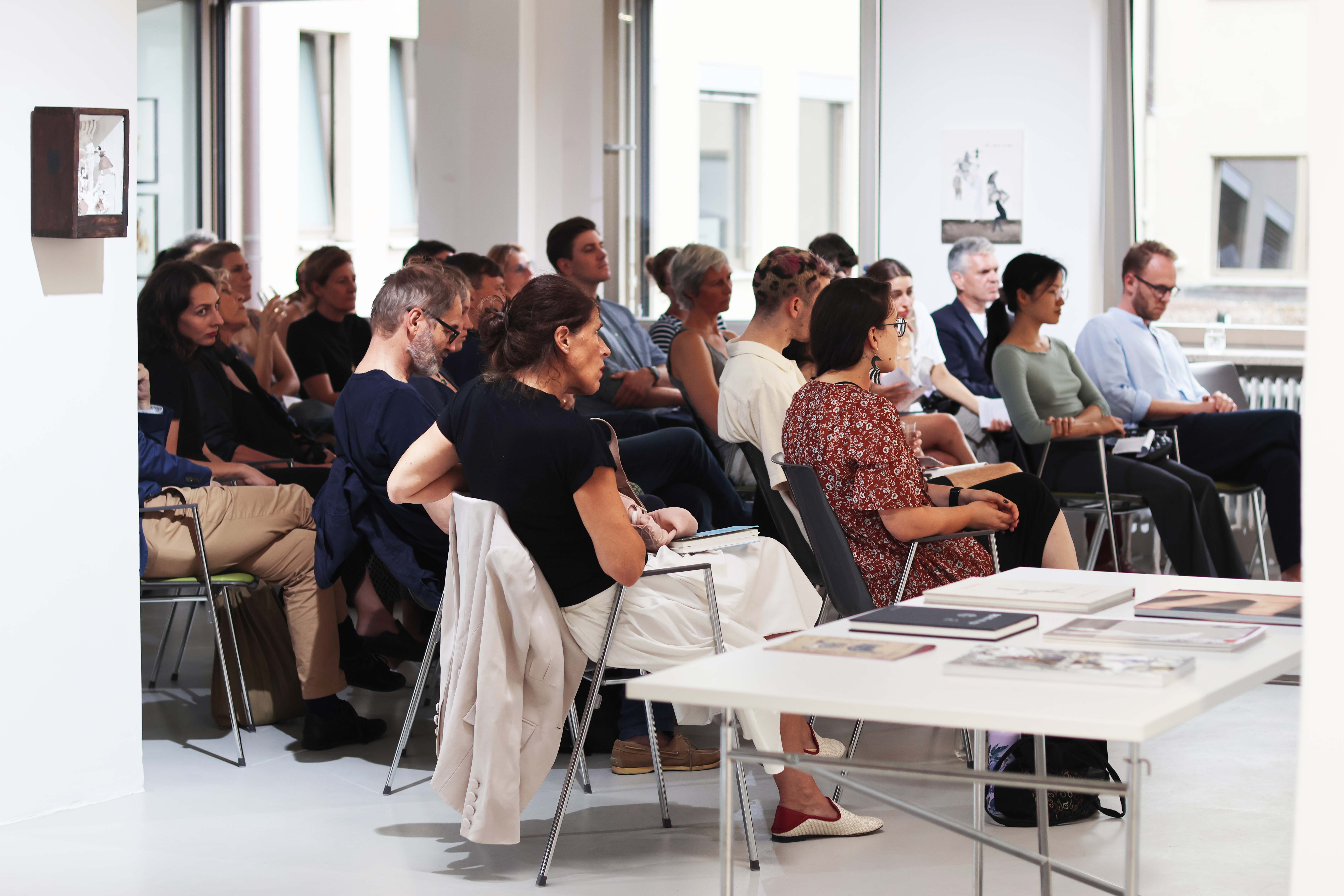
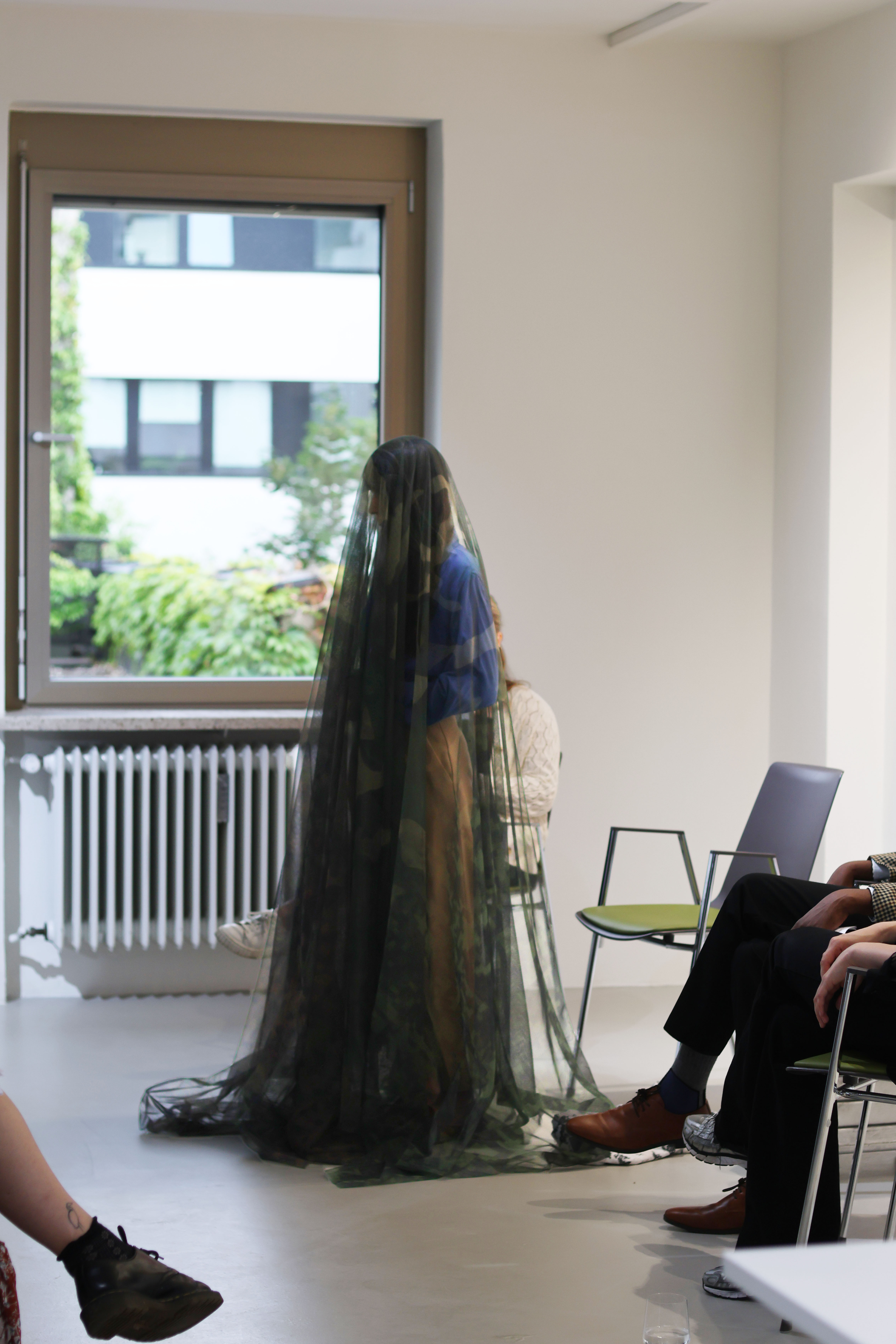
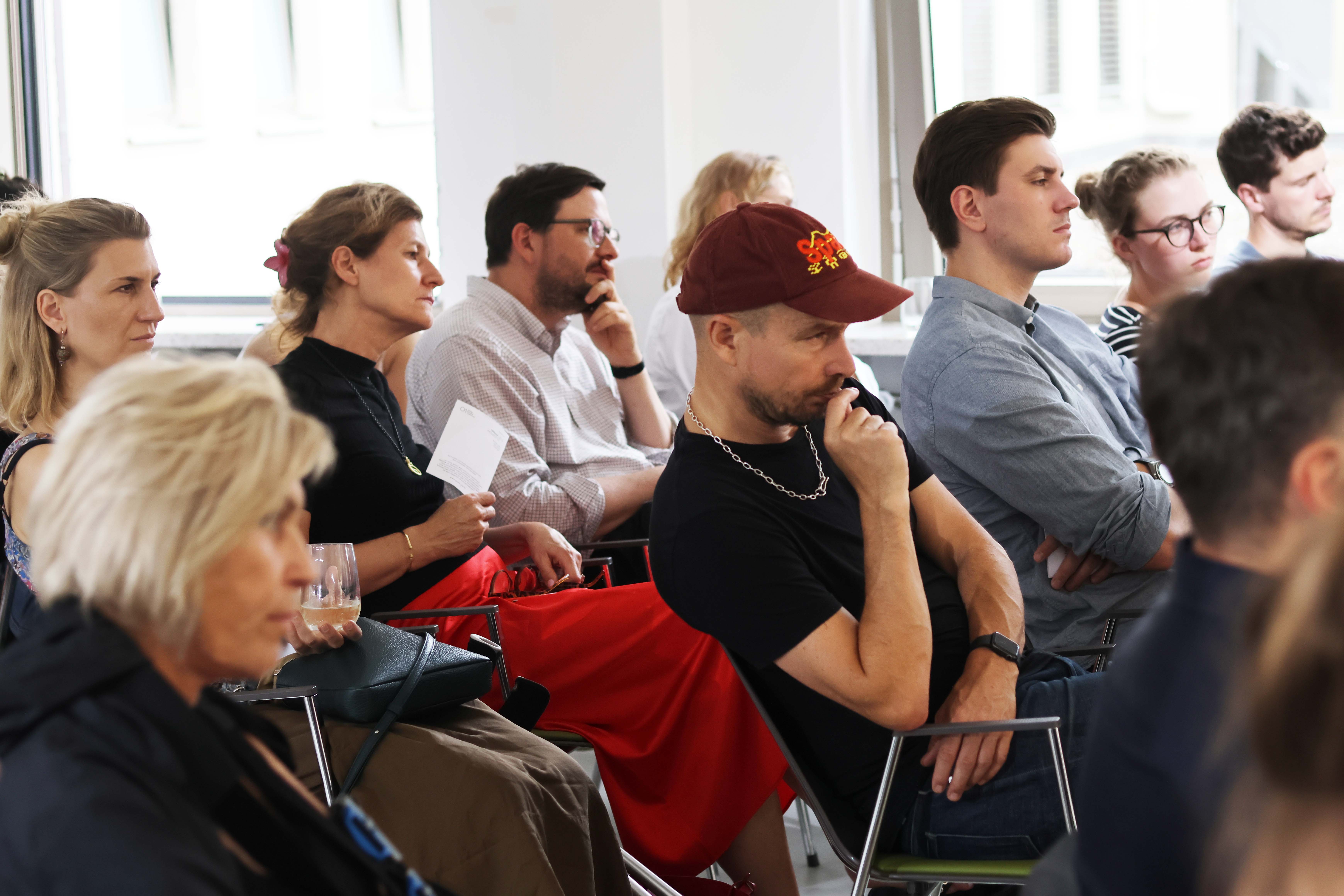

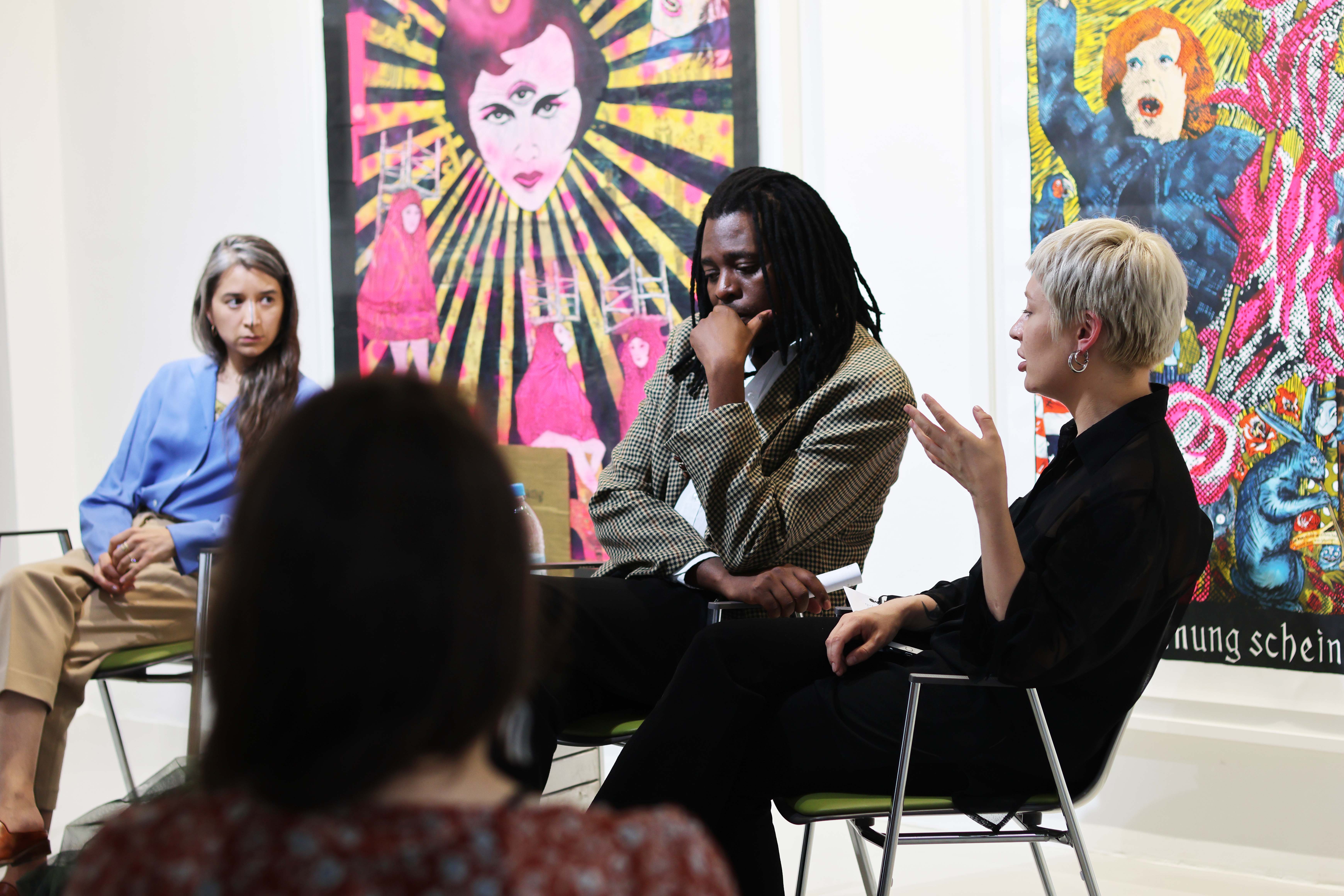
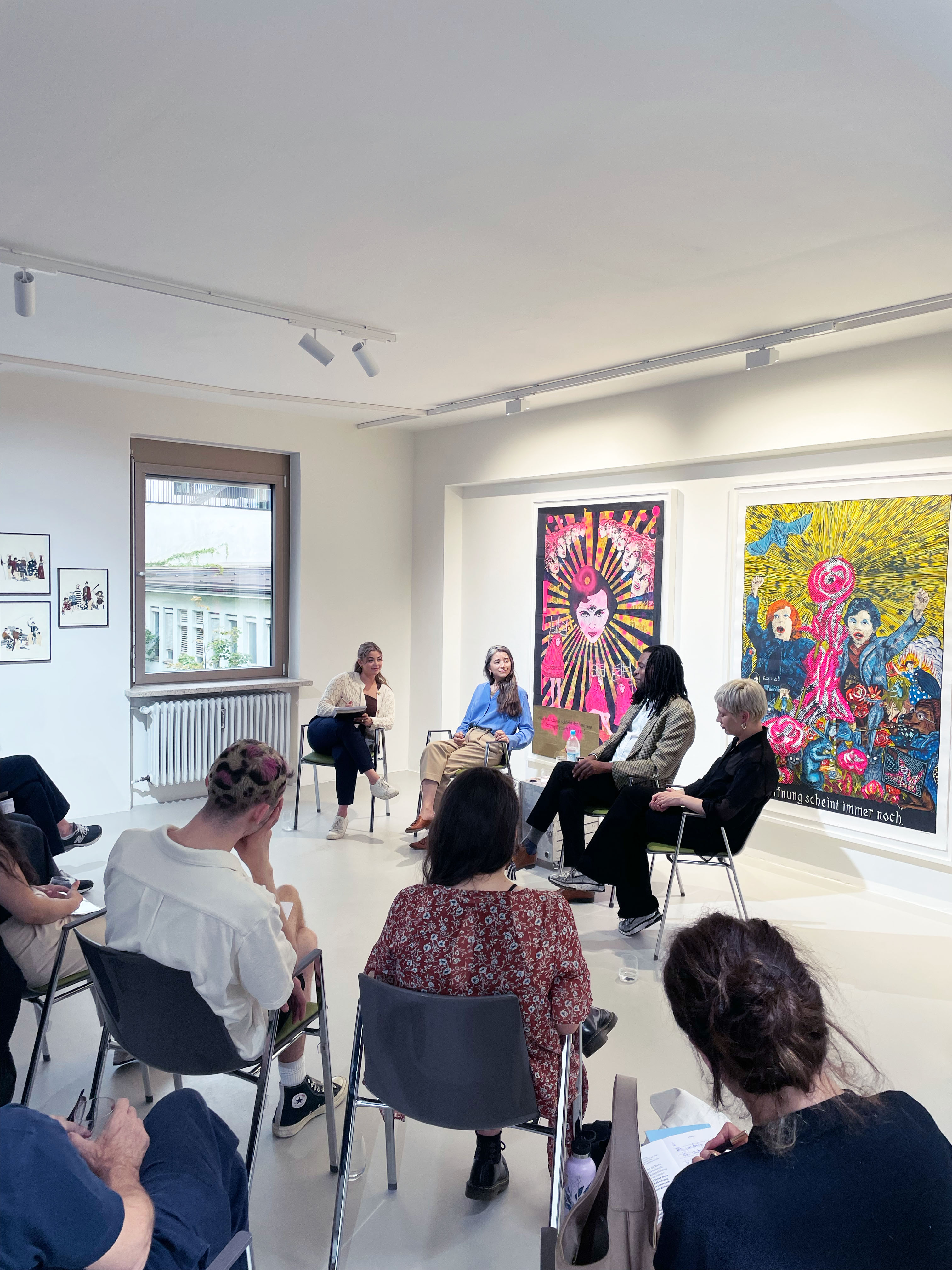
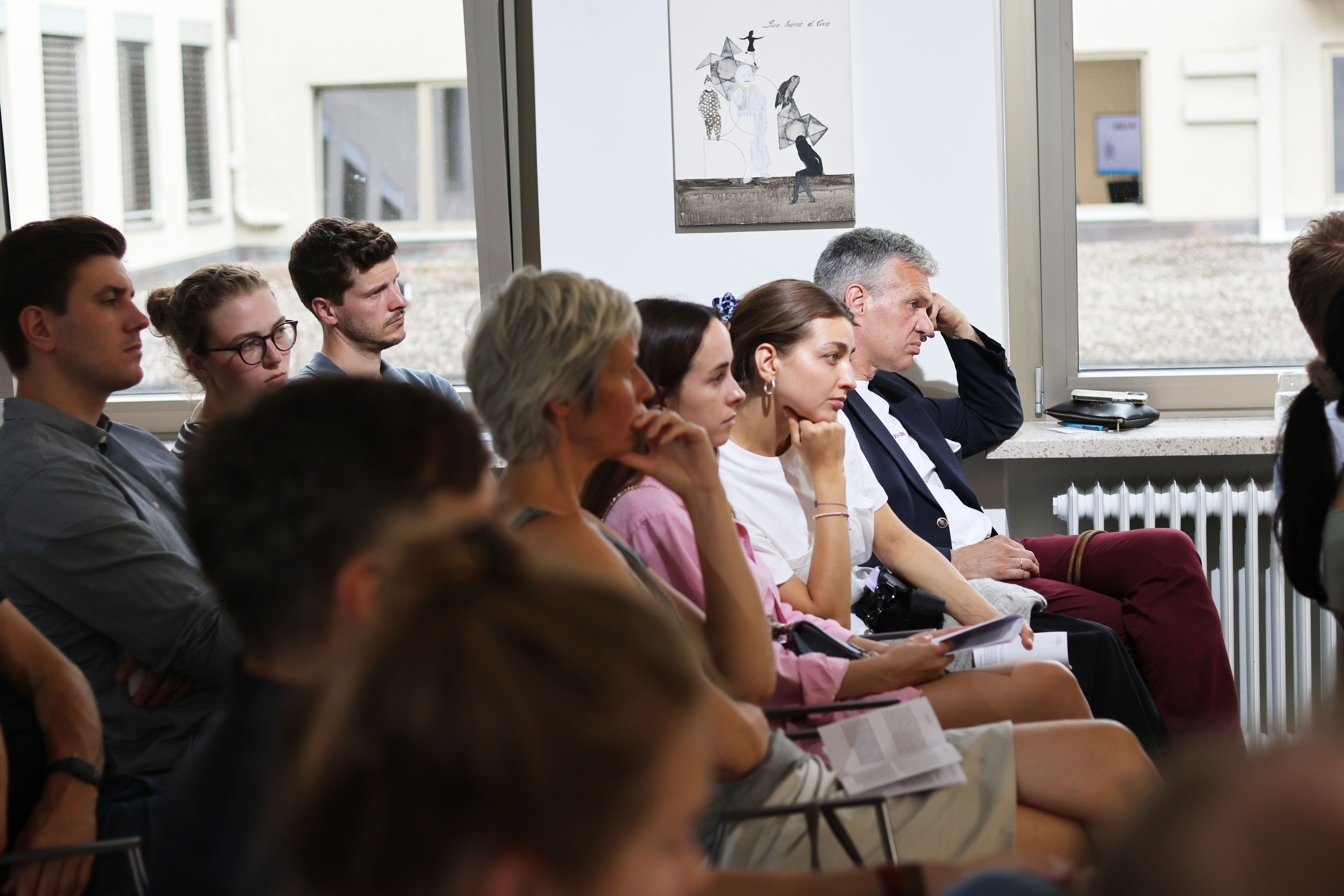

ABOUT
YSC
Die Young Security Conference e.V. (YSC) ist ein in Berlin ansässiger Think-Tank, der hauptsächlich von ehrenamtlichen Mitarbeitern geführt wird. Gegründet im Jahr 2020 von Amélie Jaques-Apke und Moritz Flössler, fördert die YSC integrative und generationenübergreifende Räume für junge Denker*innen, um mit politischen Expert*innen, Wissenschaftler*innen und hochrangigen Beamt*innen in Kontakt zu treten und neue Ideen in die Debatten über die europäische Außen- und Sicherheitspolitik einzubringen. Die YSC ist davon überzeugt, dass zukünftige Generationen durch eine tief verwurzelte multilaterale Demokratisierung von Politik und Wissenschaft die Grundlagen für ein erneuertes Europa schaffen und seine globale Präsenz transversal stärken können. Die Mission der YSC ist es, durch eine jährliche Konferenz und ein Stipendienprogramm junge Denker*innen mit politischen Expert*innen und führenden Wissenschaftler*innen auf dem Gebiet der europäischen Außen- und Sicherheitspolitik zusammenzubringen. Die YSC ist bestrebt, eine Stimme in den aktuellen Debatten über die Zukunft des Friedens in Europa und weltweit zu sein und ist der festen Überzeugung, dass der langfristige Erfolg der Europäischen Union von der Unterstützung der Öffentlichkeit abhängt, insbesondere in der Außen- und Sicherheitspolitik.
—
The Young Security Conference e.V. is a Berlin based think-tank predominantly run by volunteers. Amélie Jaques-Apke and Moritz Flössler founded it in 2020 and since its establishment, the YSC and its fellowship programme, have been fostering inclusive and intergenerational spaces for young thinkers to connect with policy experts, scholars and high ranking officials to bring new ideas into debates on European foreign and security policy. The YSC believes that future generations can build the foundations of a renewed Europe and strengthen its global presence transversally through a deeply rooted multilateral democratisation of politics and sciences. The mission of YSC is to connect young thinkers with policy experts and leading scholars in the field of European foreign and security policy through an annual conference and a fellowship programme. The YSC strives to be a voice in contemporary debates about the future of peace in Europe and around the globe and firmly believes that the long-term success of the European Union depends on public support, particularly in foreign and security policy.
ABOUT
Nkosilathi Emmanuel Moyo
Nkosilathi Emmanuel Moyo ist ein Dichter, Sachbuchautor und politischer Aktivist aus Simbabwe. Mit seinen Gedichten wendet er sich gegen Diktatur und Menschenrechtsverletzungen in Simbabwe und im subsaharischen Afrika. Zu seinen Werken gehören „Psalmen des Widerstands“ und Sachbücher wie „Dismantling Mugabeism“ und „Agony of the Republic“. Er gründete ZOYP, um junge Menschen mit politischen Ambitionen zu ermutigen, und glaubt, dass Kunst ein mächtiges Werkzeug gegen Autoritarismus ist.
—
Nkosilathi Emmanuel Moyo is a poet, non-fiction writer, and political activist from Zimbabwe. He uses poetry to challenge dictatorship and human rights violations in Zimbabwe and sub-Saharan Africa. His works include “Psalms of Resistance” and non-fiction books like “Dismantling Mugabeism” and “Agony of the Republic.” He founded ZOYP to empower young people with political aspirations and believes art is a powerful tool against authoritarianism.
ABOUT
Maria Vtorushina
Maria Vtorushina (she/they) ist Kuratorin, Forscherin und Autorin. Ihre Projekte untersuchen Konzepte und Praktiken der Freiheit und queere Kunstgeschichte in vom sowjetischen Kolonialismus betroffenen Gesellschaften. 2023 war Maria Chefredakteurin des Artslooker Magazine und leitete von 2016 bis 2022 die Kyiv Art Week. Aktuell ist sie Stipendiatin am Künstlerhaus Bethanien in Berlin, unterstützt durch das Rave-Stipendienprogramm.
—
Maria Vtorushina (she/they) is a curator, researcher, and writer. Their curatorial projects analyze concepts and practices of freedom, with a research focus on queer art history in societies impacted by Soviet colonialism. In 2023, Maria was editor-in-chief of Artslooker Magazine and led Kyiv Art Week as artistic director from 2016 to 2022. Currently, they are a curatorial fellow at Künstlerhaus Bethanien, Berlin, supported by the Rave Scholarship program.
ABOUT
Veronika Dräxler
Veronika Dräxler, 1986 geboren, ist Medien- und Performancekünstlerin. Ihre interdisziplinäre Forschung untersucht die Balance von Kräften und nutzt Muster und Materialien aus von Macht(miss)brauch geprägten Kulturlandschaften. Sie studierte an der Akademie der Bildenden Künste München und der Universität der Künste Berlin. Zu ihren Ausstellungen gehören Kunstverein Grafschaft Bentheim und Cabaret Voltaire Zürich.
—
Veronika Dräxler, born in 1986, is a media and performance artist. Her interdisciplinary research examines the balance of forces and uses patterns and materials from cultural landscapes characterised by the (ab)use of power. She studied at the Academy of Fine Arts Munich and the Berlin University of the Arts. Her exhibitions include Kunstverein Grafschaft Bentheim and Cabaret Voltaire Zurich.
ABOUT
Emeric Lhuisset
—
Emeric Lhuisset, born in 1983 and raised in a Parisian suburb, studied art at the Ecole des Beaux-Arts de Paris and geopolitics at the ENS Ulm and University of Paris 1 Panthéon-Sorbonne. His works have been exhibited internationally, including at the Tate Modern and the Louvre Lens. He has won prizes such as the British Journal of Photography International Photography Award 2020.He teaches at Sciences Po and is represented by Kalfayan Galleries. Lhuisset sees his work as an artistic interpretation of geopolitical analyses that questions the perception of reality.
ABOUT
Jillian Alice Knull
—
Jillian Alice Knull is a project manager at the Young Security Conference and is currently studying political science at the Ludwig-Maximilians-Universität, specialising in EU integration, security and migration. She works in public relations and political intelligence and has a freelance company where she teaches at LMU and OTH Regensburg, among others. Jillian also focuses on critical issues facing refugees and advocates for fair rights and procedures for asylum seekers in Germany.
ABOUT
Artists at Risk
ARTISTS AT RISK (AR)
Co-Directors: Marita Muukkonen and Ivor Stodolsky
Artists at Risk (AR) has become known as the “go-to” institution for artists and cultural professionals at risk worldwide. During its almost 10 years of activity, Artists at Risk (AR) has assisted persecuted, threatened or imprisoned artists of all kinds, both unknown and of worldwide renown. Among the prominent figures AR has assisted, one might mention the founders of Pussy Riot, Maria Alyokhina and Nadya Tolokonnikova, the Somali pop-star Lil Balil, the Vietnamese dissident Mai Khoi and the Egyptian poet Galal El-Behairy.
Art as Witness:
Broadcasting the Realities of War /
Kunst als Zeuge: Die
Übermittlung der Kriegsrealität
Wie überwindet die Kunst
sprachliche und kulturelle
Barrieren, um Kriegserlebnisse
weltweit zu vermitteln?
How does art break down
linguistic and cultural
barriers
to convey war
experiences globally?
Vor welchen Herausforderungen
stehen Künstler, wenn sie
die Traumata des Krieges
darstellen?
What are the inherent
challenges artists face in
depicting the traumas of war?
Wie trägt die Kunst zur
kollektiven Erinnerung an
den Krieg bei und sorgt
dafür, dass Gräueltaten
nicht vergessen werden?
How does art contribute
to the collective memory of
war, ensuring atrocities
are not forgotten?
Art as Weaponry:
The Strategic Use of
Creativity in Conflict /
Kunst als Waffe: Der strategische
Einsatz von Kreativität in Konflikten
Wie kann die Kunst
manipuliert werden, um
psychologische Wirkungen
in der Kriegsführung
zu erzielen?
How can art be
manipulated to achieve
psychological impacts in
warfare settings?
Wie beeinflussen
propagandistische Kunstwerke
die öffentliche Wahrnehmung
bei Konflikten?
How do propagandist
artworks influence public
perception during
conflicts?
Auf welche Weise wird
die Kunst zur Neugestaltung
der kulturellen Identität in
Kriegszeiten eingesetzt?
In what ways is art
employed to reshape
cultural identity in
wartime?
Art as Healing:
Transforming Trauma into Recovery /
Kunst als Heilung: Trauma in
Genesung verwandeln
Welche Rolle kann die
Kunst spielen bei der
psychologischen Genesung
von Menschen, die durch
einen Konflikt
traumatisiert
wurden?
What role can art
play in the psychological
recovery of individuals
traumatized by conflict?
Wie kann Kunsttherapie
die
Heilung in
Post-Konflikt-Gesellschaften
erleichtern?
How can art therapy
facilitate healing in
post-conflict societies?
︎
︎︎︎
PANEL ARCHIVE BY TOPIC
RESOURCES
Panel 24
GIOVANNI VECCHIATO
social coding / spatial coding
2025
—
Panel 22
AIMÉE VAN WYNSBERGHE
AI + Ethics / Der unstillbare Hunger der KI
2024
—
Panel 15
SEMIR ZEKI
Is beauty really subjective and can it be quantified? / Cortex (A1)
2020
—
Panel 12
GIACOMO PIRAZZOLI
Green Up / (Crossinglab.com)
2014
—
Panel 8
MARTINA FINEDER and
THOMAS GEISLER
Design Clinic / Das Papanek Konzept
2012
—
Panel 5
MUCK PETZET
Now is tomorrow / Bauen im Bestand
2012
JAPAN
Panel 9
CHRISTINE VENDREDI-AUZANNEAU and
MARIO CARPO
Identicality
2013
—
Panel 7
TERUNOBU FUJIMORI
Der Zauber des Terunobu Fujimori / International Vernacular
2012
—
Panel 4
MASAMI SAITO and HANNES RÖSLER
The architecture of food / Gebaute Speisen
2011
—
Panel 3
MURIELLE HLADIK and WILFRIED KÜHN
Passage du temps
2011
—
Panel 1
MOMOYO KAIJIMA
Atelier Bow-Wow
2010
︎︎︎
PANEL 24 — Resources
GIOVANNI VECCHIATO
social coding / spatial coding
PANEL 23 — Carte blanche
MARKUS GABRIEL /
JOCELYN MACLURE
A Dinner Party
2.0
PANEL 22 — Resources
AIMÉE VAN WYNSBERGHE
AI + Ethics /
Der unstillbare Hunger der KI
PANEL 21 — Carte blanche
YSC – YOUNG SECURITY
CONFERENCE
Art, War and Revolution /
Ausdrucksformen der Verwüstung
und Genesung
PANEL 20 — Carte blanche
ALEX RÜHLE
Lesung: Europa – wo bist du?
Unterwegs in einem
aufgewühlten Kontinent
PANEL 19 — La Cittá
ELISABETH MERK
ANDREAS HOFER
MICHAEL BUHRS
MARKUS STENGER
Transformation der Orte / What’s your program?
PANEL 3 — Japan
MURIELLE HADIK and
WILFRIED KÜHN
Passage du temps
PANEL 2 — Political Space
SAMIR EL KORDY
and YING ZHOU
Political Space

